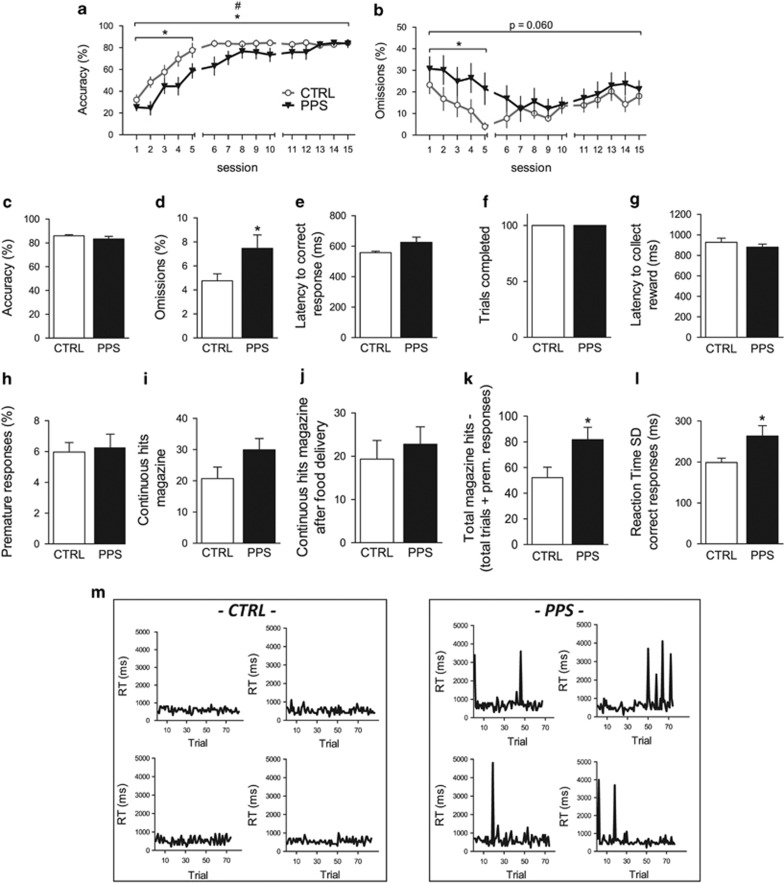Figure 1.
Effects of peripubertal stress exposure on 5-CSRTT performance at adulthood during acquisition (a and b) and during well-trained (baseline) conditions (c–m). During acquisition, peripubertally stressed (PPS) animals showed decreased accuracy, particularly during the first five training sessions (a), when they also showed more omissions (b). When tested under well-trained conditions, PPS animals did not exhibit altered accuracy (c) but they continued showing higher omissions than CTRLs (d). No significant differences were observed between PPS and CTRL rats in their latency to respond correctly (e) or in the number of trials completed (f) and in their latency to collect the reward (g). Furthermore, PPS animals did not show signs of impulsivity (h), while they showed a trend toward increased repetitive responding in the food magazine (i) but not following food delivery (j). However, when food dispenser head entries that ended either with the completion of a trial or with a premature response were subtracted from the total dispenser entries, PPS animals showed augmented magazine hits as compared with CTRLs (k). PPS animals showed increased intra-individual variability of reaction time for correct responses as measured by the average SD (l). Representative panels of reaction times for correct responses for CTRL (left) and PPS rats (right) (m). N: CTRL=14, PPS=16. *p<0.05, main effect of stress; #p<0.05, stress × time interaction, results are expressed as the mean±SEM. 5-CSRTT, five-choice serial reaction time task; CSRTT, choice serial reaction time task; CTRL, control.

